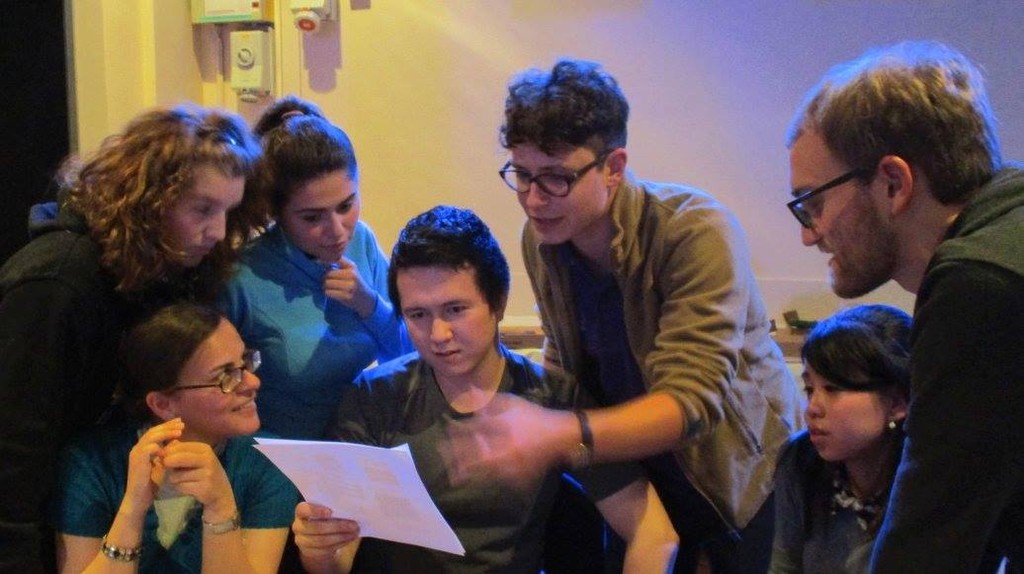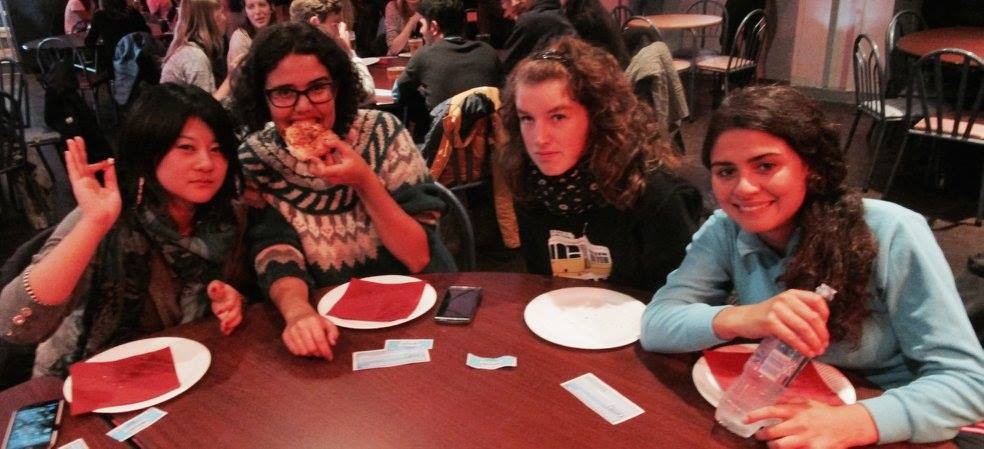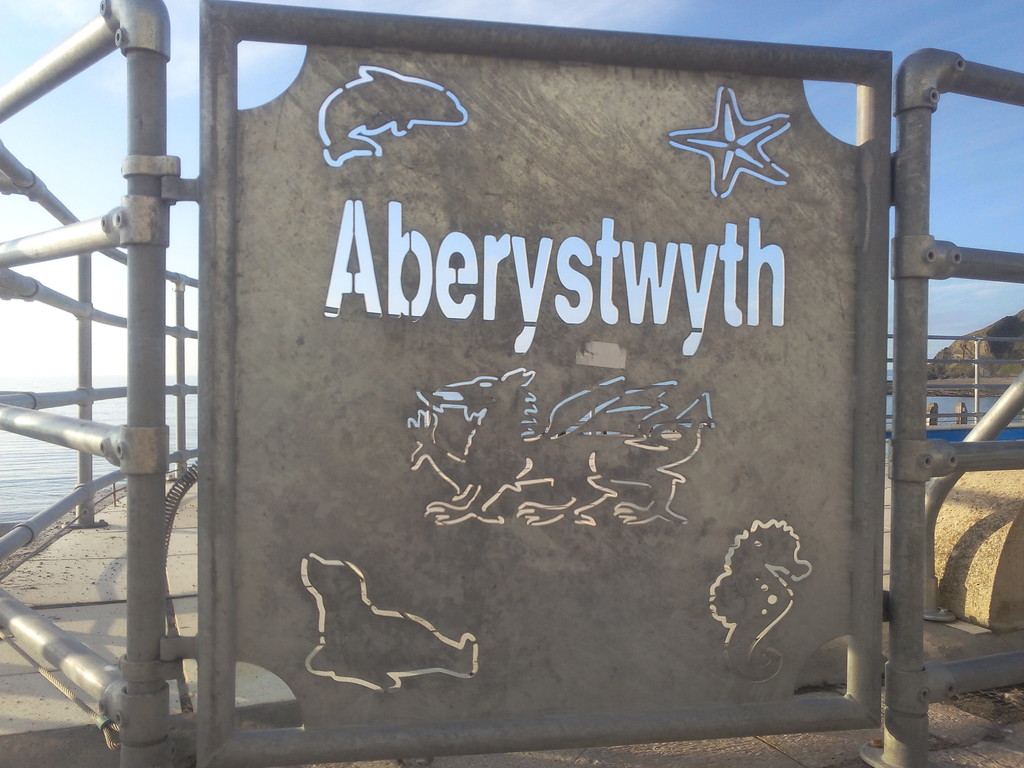My experience with English in Aberystywth
My experience with English in Aberystwyth
Welcome once more to my blog! In today's post, I am going to tell you how I improved my English, notably when I was in Aberystwyth, and thus give you some tips about how you can improve your second language if you go to a foreign country. It is an experience that I have wanted to share with you for quite some time. So saying this, let's get started!

Firstly, I have to say that in Spain I study a degree in Foreign Languages at the University of Vigo. My degree is a kind of three things joined: English as my first language, German (or French) as a second, and as a third, I had to choose between French or Portuguese, and I suppose that I will go for French. Since I've been little I've loved languages, so as you know, I wanted to go to a country which spoke one of the languages that I have been studying to improve it and also, learn and experience the culture. So well, I went on Erasmus in second year, as my English was at an intermediate level, more or less. The summer before I stayed in London, so the phase that everyone goes through at the start of "feeling alone" and "losing shame" I had already been through.
Before going on Erasmus, I familiarised myself a bit with the strange Welsh accent, which I love. It sounds amazing and they speak really clearly. The first three days in Aberystwyth I didn't speak much English, compared with the end of my stay, because I was with Spanish people, and as you already know, advice: don't only join up with people that speak your language. It is true that us Spanish usually join up, because we feel in our comfort zone and we relate to people who speak our language. But something very true is that when someone has a goal, you have to go out of your comfort zone to achieve it, so I did that. I started to make friends with people in the residence, who had a crazy level of English, especially an Austrian girl who sounded so British, even the native Welsh people were surprised when they heard her speak. It was amazing.
And this was how my English started to improve, to be more fluent, more natural and to get a bit of the accent, In my day to day life, I started to live situations which required a use of the language which I had never studied at university or on my own. Also, if you study languages, it is very difficult to internalise them in the same way as when you are actually in a foreign country. For example, we all agreed that we didn't have any idea how to say the names of vegetables in English (apart from the usual ones, of course). Therefore, the easiest way to learn them was going to the supermarket, where I learnt them without realising. One day in the supermarket, I wanted to buy a cucumber for a salad. I think it was in year 4 of Primary School when I learnt that "pepino" meant "cucumber" in English, but sometimes things get muddled and you forget, I'll explain. I went to the vegetable section and read "courgette", which I thought was a cucumber because both have a similar colour and shape, I don't know. So from this, for a week I was putting courgette in my salad instead of cucumber. "The cucumbers are so weird here", I thought.
And with these kinds of experiences this was how I improved my vocabulary and my fluency. The day to day life, the routine, speaking with natives, English classes, the hundreds of essays I had to write, presentations, parties, etc. It is the combination of all of these things that make you improve your language: speaking with the girls from my halls and the Welsh people improved my speaking and listening skills, writing essays and the corrections from the professors improved my writing, and reading the obligatory books that we had, in the American Literature module for example, meant that my reading comprehension kept getting better and better.

I have to say that I was really lucky because I had a flatmate from Australia, one from the United States and also some from Wales so I could notice first-hand how different all the accents are. In fact, the first few times that I spoke with my American flatmate, it was really difficult for me to understand her, she talked too quickly and with an accent. After a month and a half, I didn't have problems. It is all a question of getting used to it, practising it as much as possible, reading lots, being interested, and having little shame and being committed.
A little piece of advice from today's blog: something really useful that I did was to write down on post-it notes the words that I had learnt in day to day life, or words that I read or heard and I didn't know the meaning of. At the end of the week, I would rewrite them all with their translation and I learnt so much. There were weeks where I did more, and weeks where I did less, but it was a good way of refreshing my memory. I remember the first expression that I put down was "the more the merrier", which is really handy when you want to invite someone to a party.
I suppose that for a lot of you it would be interesting to know what it is like going to a class which is taught in a different language. Well, I think it depends on a lot of factors. For example, if you study something to do with technology or something in the health field, you will have to have an intermediate to the high command of the language, because the language that you are going to come across in the classes and textbooks will be really specific. In my case, as you know I study philology, so for all the vocabulary that I came across... I was already very familiar with it, and I didn't have problems following the classes. I had teachers who I understood better and others who were harder to understand, but in the end, I got used to it. Everyone will have to figure out their own situation, their degree, their level of English and take the necessary actions to pass the year. Anyway, if I went to Wales, where they speak English, studying Modern Languages and... What do people do who go to countries where they speak a less universal language than English? If they could do it, why can't you?

In addition to all of this, I also have to mention my tandem. Matthew, my tutor, organised a tandem. He is a Spanish teacher, so he decided to join each Erasmus student from Spain with a student that spoke English, to practice as much English as Spanish. My partner was called Rebecca, she was from California and we met up for an hour per week, on Fridays. We spoke for half an hour in Spanish and half an hour in English. I helped her with her questions and she helped me with my essays. In addition, I was doing modules that she had already studied, which was a big help to me.
Another thing that I recommend is that if you are thinking of getting a qualification (those official exams that everyone is scared of), that you do it when you are in the host country. Don't wait to go back there It is better to do it when you have to use the language practically every day and you are more used to it. That is what I did. I gave in the application to do the exam, and three days before I did a couple of writing practices to get me ready. Speaking, listening and reading were skills that I was practising all the time, so I thought that I didn't need to practice them. Also that week I was so busy with work to submit.
In conclusion, this is how to improve your second language in a foreign country, there isn't much more to it. The personal satisfaction that you feel when finally you can understand basically everything without problems is incredible. I even ended up dreaming in English! I thought that that would never happen, but it did. I remember that Paula, the Spanish girl, and I communicated most of the time in Spanish, but there was a moment where we forgot how to say words in our language and we said them in English. It was really funny, hahaha. In the end, I even liked that they pronounced my name "Clodia. "

And that is everything, friends. I hope that you have found this interesting. If some of you are planning to go abroad to improve your English, I hope that you have as much luck as I did, or more! As you already know, you can leave your opinions, what tricks you have for learning a language, etc, below. See you tomorrow for the next post!

Photo gallery
Content available in other languages
Want to have your own Erasmus blog?
If you are experiencing living abroad, you're an avid traveller or want to promote the city where you live... create your own blog and share your adventures!
I want to create my Erasmus blog! →




















Comments (0 comments)